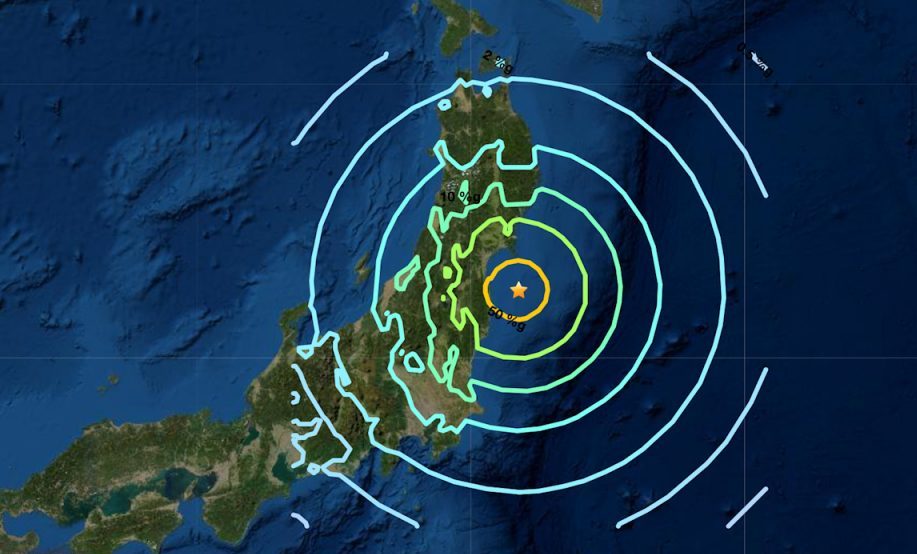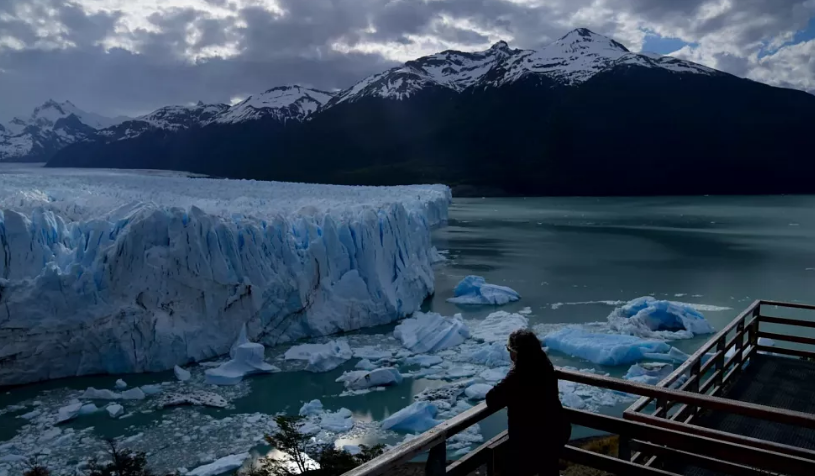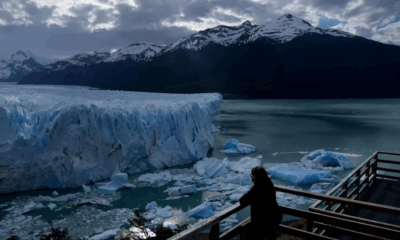Weather
Tsunami Advisory Issued Following Powerful 6.9 Magnitude Earthquake Off Southern Japan

A powerful earthquake measuring 6.9 in magnitude struck off the coast of southern Japan on Thursday, prompting the Japan Meteorological Agency to issue a tsunami advisory. The quake, which registered a preliminary magnitude of 6.9, was centered off the eastern coast of Kyushu, Japan’s southern main island, at a depth of approximately 30 kilometers.
The advisory predicted waves up to 1 meter high along the southern coast of Kyushu and the nearby island of Shikoku. As of now, no additional details have been reported.
Japan, situated within the Pacific “Ring of Fire,” is one of the most earthquake-prone regions in the world. The country’s history with seismic activity is marked by significant events, most notably the catastrophic magnitude 9.0 earthquake in March 2011. This disaster was followed by a devastating tsunami, which caused widespread destruction along the northeastern coast, resulting in nearly 20,000 fatalities and triggering the Fukushima Daiichi nuclear meltdowns.
In a more recent event, a magnitude 7.6 earthquake struck the north-central region of Noto on January 1, leading to the deaths of at least 241 people.
As Japan faces this latest seismic event, the nation remains on high alert, mindful of its vulnerable position within the Pacific “Ring of Fire.” The memory of past disasters serves as a somber reminder of the potential dangers posed by earthquakes and tsunamis in this geologically active region.

Weather
Perito Moreno Glacier Faces Fastest Retreat in a Century, Signaling Delayed Climate Impact

The Perito Moreno Glacier in Argentina’s Southern Patagonian Ice Field—long considered one of the few stable glaciers in the world—is now undergoing its most dramatic retreat in over 100 years, according to new research.
Once firmly anchored in a valley and in contact with bedrock, the glacier has recently begun to lose that physical connection, accelerating ice loss as it slowly moves backward. The findings, published in the journal Communications Earth & Environment, suggest the glacier could retreat several more kilometers in the coming years.
“This retreat is extreme because the glacier hasn’t been climatically stable for more than a decade,” said Moritz Koch, a doctoral student at Friedrich-Alexander University of Erlangen-Nuremberg and one of the study’s authors. “What we’re seeing now is a delayed response to climate change as the glacier detaches from its central pinning point.”
Koch and his team gathered extensive data to assess the glacier’s status. Using a helicopter-mounted radar, sonar readings from Lake Argentino, and satellite imagery, they measured ice thickness and tracked changes in its structure. Time-lapse photographs taken since 2020 reveal striking visual evidence of the retreat.
Perito Moreno, declared a UNESCO World Heritage Site in 1981, is a major tourist attraction, drawing hundreds of thousands of visitors annually. Known for its dramatic “calving” events—where chunks of ice break off into the lake—it has often been cited by climate change skeptics as an example of glacial stability.
However, scientists stress that even stable glaciers are not immune to long-term climate pressures. “The basic physics are simple: heat melts ice, and with global warming, glaciers melt faster,” said Richard Alley, an ice scientist at Pennsylvania State University, who was not involved in the study. “But predicting exactly when a glacier will break apart is far more complicated.”
Erin Pettit, a glaciologist at Oregon State University, explained that while glaciers naturally fluctuate, stable climates allow snow and ice accumulation to balance melting. With warming trends, that balance tips, leading to persistent shrinkage.
The implications go far beyond Patagonia. Rapid glacial retreat contributes to global sea level rise, posing severe risks to coastal and island communities. While smaller glaciers like Perito Moreno do not directly drive global sea level increases, their changes offer valuable insights into what might happen to massive ice sheets in Antarctica and Greenland.
Beyond their environmental significance, glaciers are vital to many communities, serving as freshwater sources and shaping landscapes and cultures. “We’re losing these little bits of ice everywhere,” Pettit said. “Hopefully, this helps people appreciate the ice we still have—even if it won’t always be here.”
Weather
Germany and Italy Brace for Intense Heatwaves Amid Widespread Health Alerts

Germany and Italy are grappling with extreme heatwaves this week, prompting widespread health alerts across both countries. The heat, driven by high humidity and unrelenting temperatures, poses significant health risks, particularly to vulnerable populations.
In Germany, the country is bracing for its hottest day of the year on Tuesday, with temperatures expected to soar close to 40°C (104°F). The German Weather Service (DWD) recorded a high of 35.7°C (96.3°F) on Monday in Bad Neuenahr-Ahrweiler, Rhineland-Palatinate, marking the highest temperature of the year so far. However, as the heatwave spreads northeastward, temperatures are anticipated to reach 37°C (98.6°F) in some regions, potentially setting a new record for 2024.
Adding to the discomfort, high humidity levels are expected to make it feel even hotter, complicating efforts to stay cool. The situation is exacerbated by “tropical nights,” where temperatures remain above 20°C (68°F) even after sunset, offering little respite from the heat.
In response, authorities have issued heat alerts across most of Germany, with only parts of the North and Baltic Sea coastlines spared. Level 2 and Level 3 heat warnings are in effect for areas in Baden-Württemberg, particularly around Schweighausen and Oberprechtal, northeast of Freiburg. The public is urged to take precautions, especially those most vulnerable to heat-related illnesses.
Meanwhile, Italy is also facing record-high temperatures as the country prepares for the Ferragosto holiday on August 15. After enduring an extreme heatwave last weekend, with temperatures exceeding 40°C (104°F) in some areas, the heat is expected to peak again this week, particularly in Sardinia and Sicily.
Although the current temperatures have not yet surpassed last year’s records, the heatwave’s impact is unusually widespread. On Monday, 17 cities, including Rome, Palermo, and Florence, were placed under the Ministry of Health’s red alert—the highest level of heat warning. By Tuesday, that number had risen to 19, and it is expected to reach a record 22 cities by Wednesday.
The red alert signifies a serious health risk to the general population, especially for the elderly, children, and individuals with pre-existing health conditions. Just five of Italy’s 27 major cities—Catania, Civitavecchia, Messina, Pescara, and Reggio Calabria—are under a lower yellow level of alert. Authorities have advised residents to stay indoors during the afternoon, avoid strenuous activity, and stay hydrated.
The current heatwave in Italy is expected to begin easing as the Ferragosto holiday approaches, with most of the country cooling down significantly by the weekend. Thursday and Friday may also bring relief in the form of cloudy skies and potential thunderstorms.
Europe, the fastest-warming continent on Earth, continues to experience increasingly severe heatwaves, a stark reminder of the accelerating impacts of human-caused climate change. As temperatures rise, so too does the urgency for adaptive measures to protect public health and mitigate future risks.
-

 Entertainment1 year ago
Entertainment1 year agoMeta Acquires Tilda Swinton VR Doc ‘Impulse: Playing With Reality’
-

 Business2 years ago
Business2 years agoSaudi Arabia’s Model for Sustainable Aviation Practices
-

 Business2 years ago
Business2 years agoRecent Developments in Small Business Taxes
-

 Home Improvement1 year ago
Home Improvement1 year agoEffective Drain Cleaning: A Key to a Healthy Plumbing System
-

 Politics2 years ago
Politics2 years agoWho was Ebrahim Raisi and his status in Iranian Politics?
-

 Business2 years ago
Business2 years agoCarrectly: Revolutionizing Car Care in Chicago
-

 Sports1 year ago
Sports1 year agoKeely Hodgkinson Wins Britain’s First Athletics Gold at Paris Olympics in 800m
-

 Business2 years ago
Business2 years agoSaudi Arabia: Foreign Direct Investment Rises by 5.6% in Q1





















